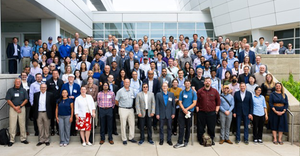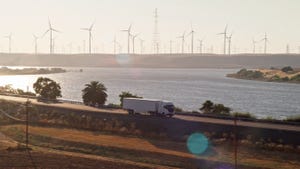From the Can: The More Things Change
Which characterization best defines our industry?
As states and communities continue to debate e-waste legislation and plastic bag bans (see “Wired for Laws” and “Thick Paper or Thick Plastic?” in this month’s Tip-Off section), it is apparent to me that the waste services industry is tugged between two suppositions. The first is conventional wisdom, held by many both within our industry and outside it, is that the waste services industry is defined by stability, a stalwart segment of the economy that is largely impervious to recession and insulated from rapid change. “There will always be trash,” some are wont to say, the obvious implication being that there will always be a need for someone to handle that material. I’ve said it myself.
But there is another note sounding at the same time, one that augurs inescapable upheaval, not only in how we handle waste but also in how we fundamentally define and measure it. In their columns, Chaz Miller (“It Looked Good on Paper”) and Bryan Staley (“Fingerprinting Garbage”) articulate the increasing challenge of accurately tracking recycling rates and the composition of the waste stream, and the reasons why those metrics are suddenly more necessary than ever before.
So which characterization best defines our industry? Perhaps unsurprisingly, I would say both. The same underlying stability that anchors the waste business also allows us the freedom to pursue new ways of approaching it. Yes, there will always be trash. But there will also always be better ways to manage it.
In the vein of finding better ways to do what we have always done, Allan Gerlat looks at how a number of communities have embraced the “Pay-As-You-Throw Playbook” to foster positive changes in their residents’ disposal habits and the way they think about garbage. Meanwhile, in “Automation Showdown,” contributing writer Mike Fickes reexamines a unique pilot in Charleston County, S.C., that used radio frequency identification (RFID) technology to gauge which of two automated collection truck configurations was best suited to that community. Finally, Amy McDonough of Borrego Solar Systems Inc. shows how a closed landfill in Easthampton, Mass., learned a new solar trick in “Letting the Sunshine In.”
As we consider these stories and as we perform our daily work, we should all look for ways, large and small, that we can help foster change in an industry that, in some ways, never changes.
I welcome your thoughts on this subject, which can be sent to [email protected].
About the Author
You May Also Like


